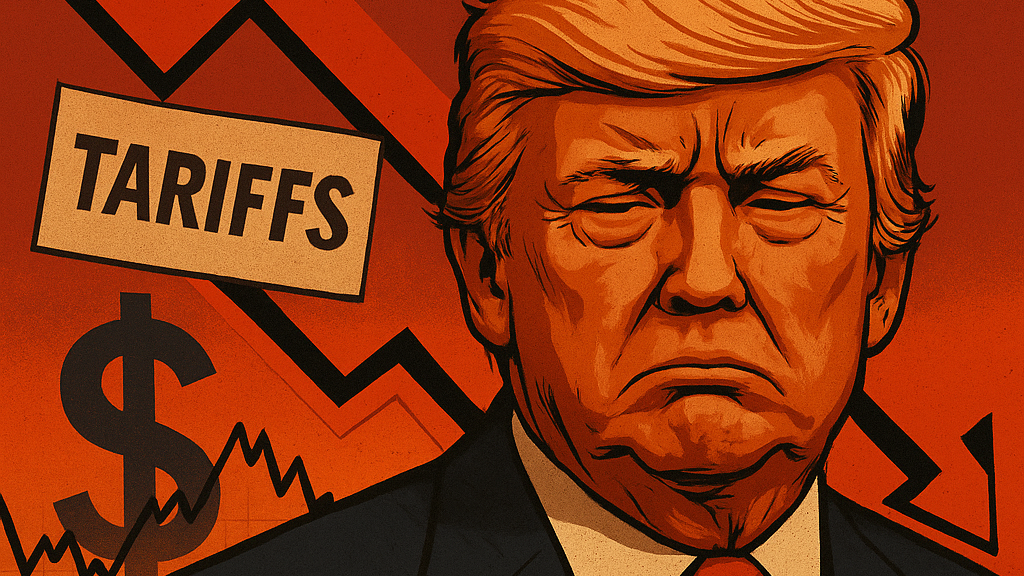Trump’s Erosion of Trust in Economic Data: Lessons from China’s Path to Credibility Crisis
In recent years, the manipulation of economic data has emerged as a contentious topic, especially in the political landscape of the United States. Former President Donald Trump’s administration was often criticized for its handling of economic statistics, which some argue led to an erosion of public trust in these crucial indicators. This phenomenon is not unique to the U.S.; China offers a stark example of how manipulating economic data can ultimately lead to a government credibility crisis. The lessons drawn from China’s experience can provide valuable insights into the implications of data manipulation in the U.S.

The economic data that governments release plays a pivotal role in shaping public perception, influencing policy decisions, and guiding investment strategies. When that data is perceived as unreliable or manipulated, it can undermine the very foundations of trust between the government and its citizens. This article will explore how Trump’s approach to economic data manipulation mirrors some of the challenges faced by China in maintaining credibility with its economic statistics, the consequences that ensued, and what lessons can be learned moving forward.
The Importance of Economic Data in Governance
Economic data serves as a critical tool for assessing the health and direction of a nation’s economy. It encompasses a wide range of indicators, including GDP growth, unemployment rates, inflation, and consumer confidence. These metrics help policymakers formulate effective economic strategies and provide citizens with insights into the state of their financial wellbeing.
Public Perception and Trust
The trust in economic data is paramount. When citizens believe that the information presented by their government is accurate and reliable, they are more likely to support policies and initiatives. However, when data manipulation occurs, public perception can swiftly shift, resulting in skepticism and disillusionment.
Trump’s Approach to Economic Data Manipulation
During his presidency, Trump frequently touted positive economic statistics to bolster his administration’s narrative. However, critics alleged that his administration selectively presented data or downplayed negative indicators to paint a rosier picture of the economy. This strategic manipulation raised concerns about the integrity of the data being reported.
Selective Reporting and Its Consequences
One of the most notable instances of selective reporting occurred with unemployment statistics. The Trump administration often highlighted declining unemployment rates while downplaying the implications of underemployment and labor force participation rates. This approach not only misled the public but also sparked debates about the reliability of government-provided statistics.
China’s Credibility Crisis: A Cautionary Tale
China’s experience with economic data manipulation serves as a cautionary tale for other nations, including the U.S. Over the years, the Chinese government has faced allegations of inflating economic growth figures and suppressing negative reports. This has led to widespread skepticism about the authenticity of its economic statistics.
The Impact of Data Manipulation on Trust
The manipulation of economic data in China has resulted in a significant erosion of trust, both domestically and internationally. Investors and analysts have grown wary of the figures released by Chinese authorities, leading to increased volatility in markets and a reluctance to rely on Chinese economic indicators for decision-making.
Comparative Analysis: U.S. vs. China
While the contexts of the U.S. and China differ significantly, a comparative analysis reveals some striking similarities in how data manipulation can lead to trust erosion. Both nations have experienced the ramifications of presenting misleading economic data and the subsequent loss of credibility.
- Transparency Issues: In both countries, a lack of transparency surrounding economic data has fueled skepticism.
- Selective Reporting: Similarities exist in the selective reporting of favorable indicators while downplaying adverse data.
- Public Sentiment: Both nations face challenges in maintaining public trust when economic figures are perceived as manipulated.
- International Relations: Trust in economic data impacts foreign investment and international relations for both the U.S. and China.
Lessons Learned: Rebuilding Trust in Economic Data
The erosion of trust in economic data is a serious issue that can have long-lasting implications. To rebuild trust, both the U.S. and China must prioritize transparency, accountability, and the integrity of their economic reporting. Here are some key steps that can be taken:
- Implementing Independent Oversight: Establishing independent bodies to audit and verify economic data can enhance credibility.
- Encouraging Open Dialogue: Fostering an environment where government officials engage with economists and the public can build trust.
- Standardizing Reporting Practices: Adopting standardized practices for data collection and reporting can improve consistency and reliability.
- Promoting Financial Literacy: Educating the public about interpreting economic data can reduce misinformation and enhance trust.
Frequently Asked Questions (FAQ)
1. How did Trump’s administration manipulate economic data?
Trump’s administration was accused of selectively presenting favorable economic statistics while downplaying or ignoring negative indicators, which raised concerns about the reliability of the data provided.
2. What are the implications of data manipulation for governance?
Data manipulation can erode public trust, lead to skepticism about government intentions, and ultimately destabilize the relationship between the government and its citizens.
3. Why is transparency important in economic reporting?
Transparency is crucial because it fosters public trust, encourages informed decision-making, and ensures that policies are based on accurate information.
4. How does China’s economic data manipulation compare to that of the U.S.?
Both China and the U.S. have faced challenges related to data manipulation, including issues of transparency and selective reporting, which have impacted public trust and international relations.
5. What steps can be taken to rebuild trust in economic data?
Key steps include implementing independent oversight, encouraging open dialogue, standardizing reporting practices, and promoting financial literacy among the public.
Conclusion
The manipulation of economic data can have severe consequences for government credibility, as illustrated by both Trump’s presidency and China’s ongoing credibility crisis. As societies increasingly rely on accurate economic indicators to navigate complex financial landscapes, maintaining the integrity of these statistics becomes paramount. By learning from the experiences of other nations, particularly China, the U.S. can take proactive measures to rebuild trust in its economic data and ensure that public perception aligns with reality. The lessons learned from these experiences highlight the need for transparency, accountability, and a commitment to accurate reporting in order to foster trust and confidence among citizens.
📰 Original Source
Este artigo foi baseado em informações de: https://www.wired.com/story/trump-labor-statistics-china-comparison-gdp-unemployment/



